Monthly Journal
October 2023
International Press Review
The most relevant events of the area through international sources
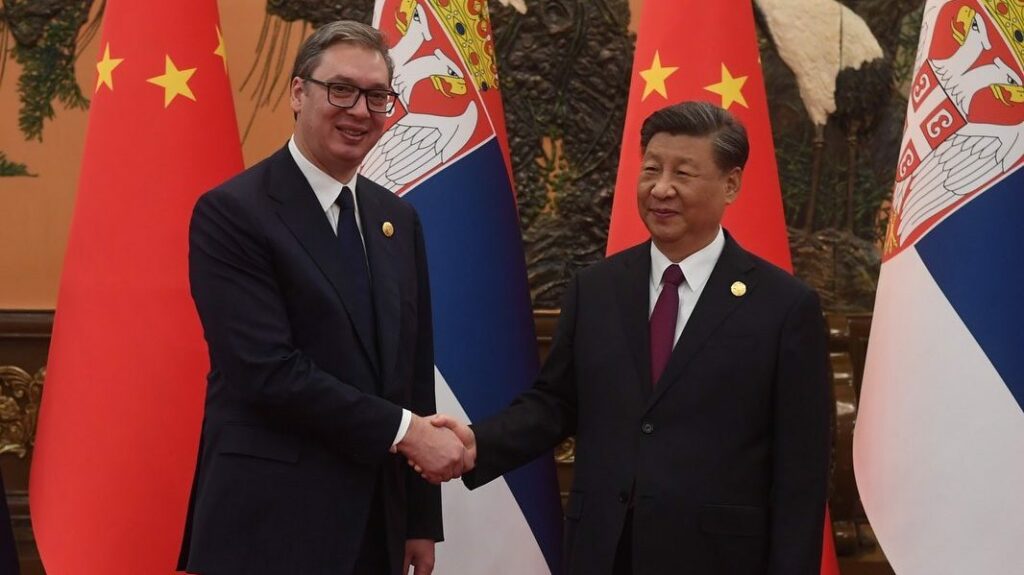
Belgrade and Beijing sign free trade agreement
Balkan Insight
Serbia and China signed a free trade agreement in Beijing during the Belt and Road Forum. Serbian President Aleksandar Vucic described it as a significant step forward for its country, emphasising the importance of prioritising Serbia’s interests and future cooperation with China, particularly before EU membership. Furthermore, Serbia’s Ministry of Construction, Transport and Infrastructure signed three commercial contracts with Chinese firms for infrastructure projects totalling nearly four billion euros, including the construction of approximately 300 kilometres of new roads and the purchase of five Chinese high-speed electric multiple unit trains (EMU). Nevertheless, some significant integration problems with the Hungarian (and EU standards related) side of the rail project have to be solved, otherwise the whole venture risks to be seriously jeopardised.
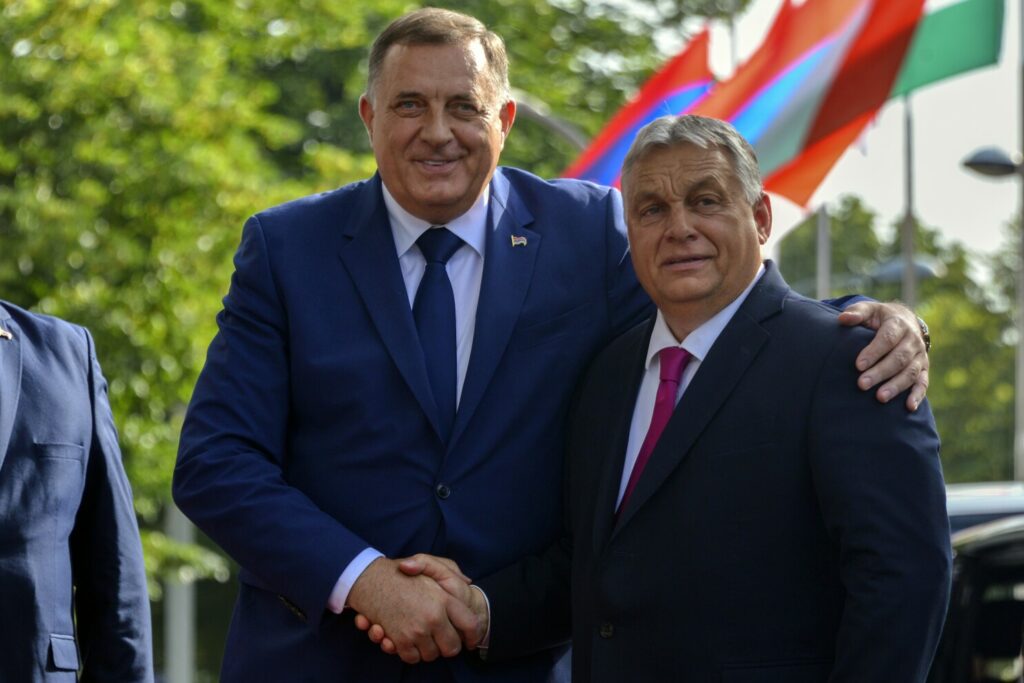
Hungary offers help to Dodik after German sanctions
Radio Free Europe
Bosnian Serb leader Milorad Dodik has revealed that Hungary may step in to take over infrastructure projects that Germany had recently halted in Republika Srpska, Bosnia-Herzegovina’s Serb-dominated entity, due to Dodik’s secessionist policies. In August, Germany halted four projects totalling 105 million euros. According to Dodik, Hungarian Prime Minister Viktor Orban has expressed his willingness to replace the cancelled projects. Orban, a key ally of Dodik, has also obstructed EU sanctions against Republika Srpska’s pro-Russian president.
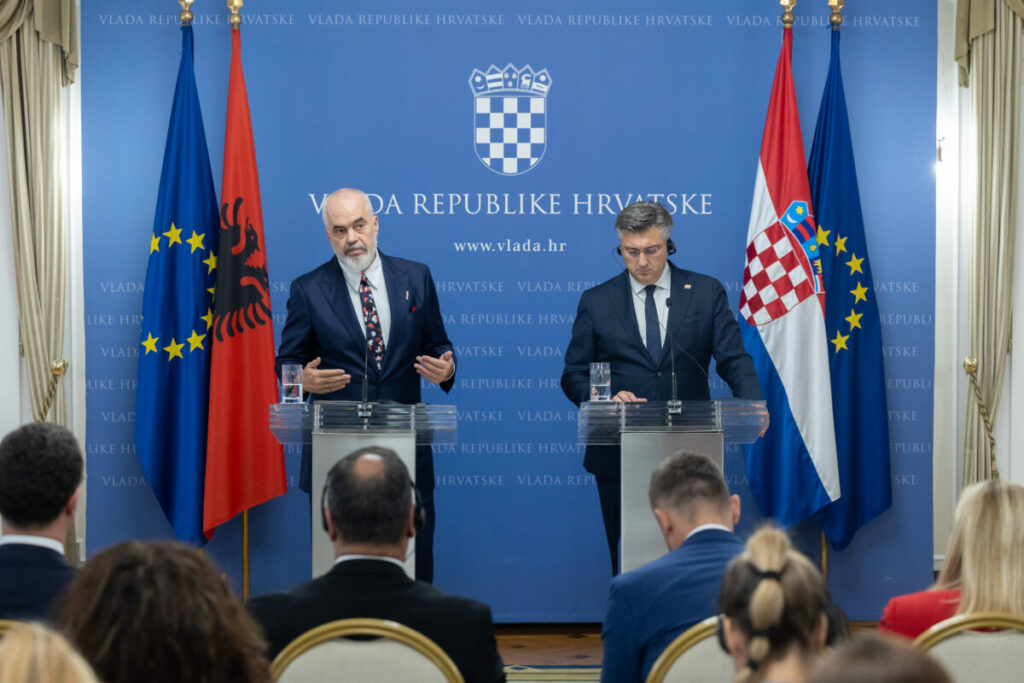
Albania and Croatia ask for sanctions against Serbia
Koha
The Prime Ministers of Albania and Croatia, Edi Rama and Andrej Plenkovic, expressed condemnation for the violence committed by a Serbian armed group in northern Kosovo and called for Western and EU to take action against Serbia. Rama and Plenkovic expressed concern over the recent clashes in Kosovo, but also over the Serbian government’s decision to call a day of national mourning also for the Serbian paramilitaries killed. Rama highlighted the incompatibility of such actions with European values, while Plenkovic criticised the Belgrade’s mourning day decision as an implicit support to the violence in northern Kosovo.
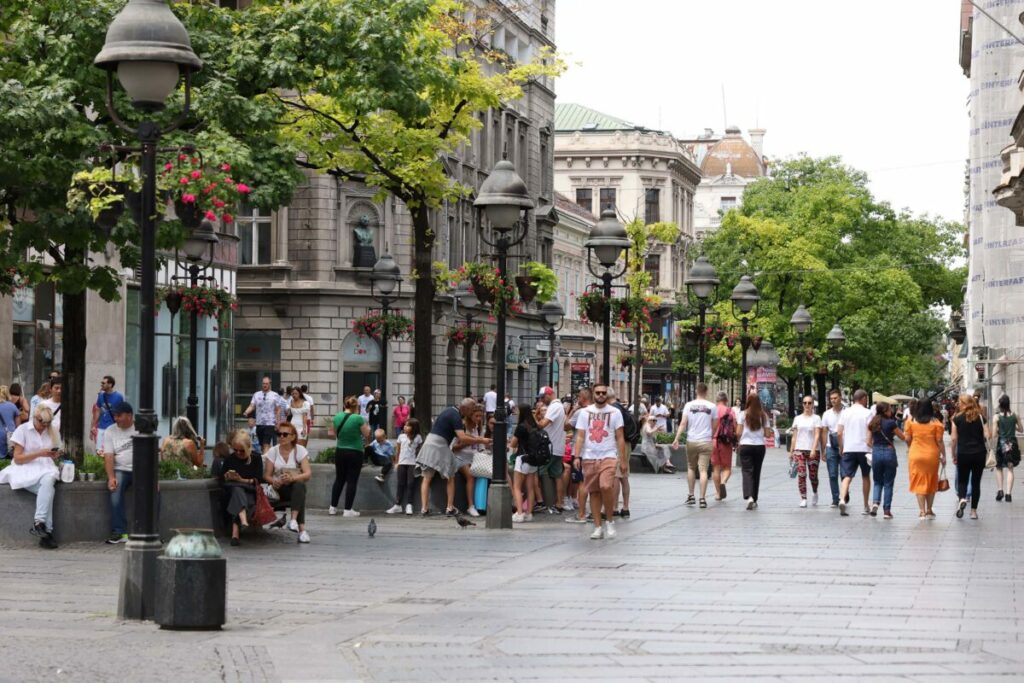
Half of Serbs think that Kosovo is forever lost
N1
According to a poll by the Institute for European Affairs, nearly half of the public in Serbia believes Kosovo is lost, while only a third believe it is not. People aged 30-44 tend to think Kosovo is definitely lost for Belgrade, whereas those over 60 have more hope of its effective reunification with the rest of Serbia. The poll indicates that these views have remained consistent over the past 8 years. Regarding possible recognition of Kosovo 32,3 percent see it as a viable option, 39,8 percent disagree, and 27,32 percent are uncertain about it.
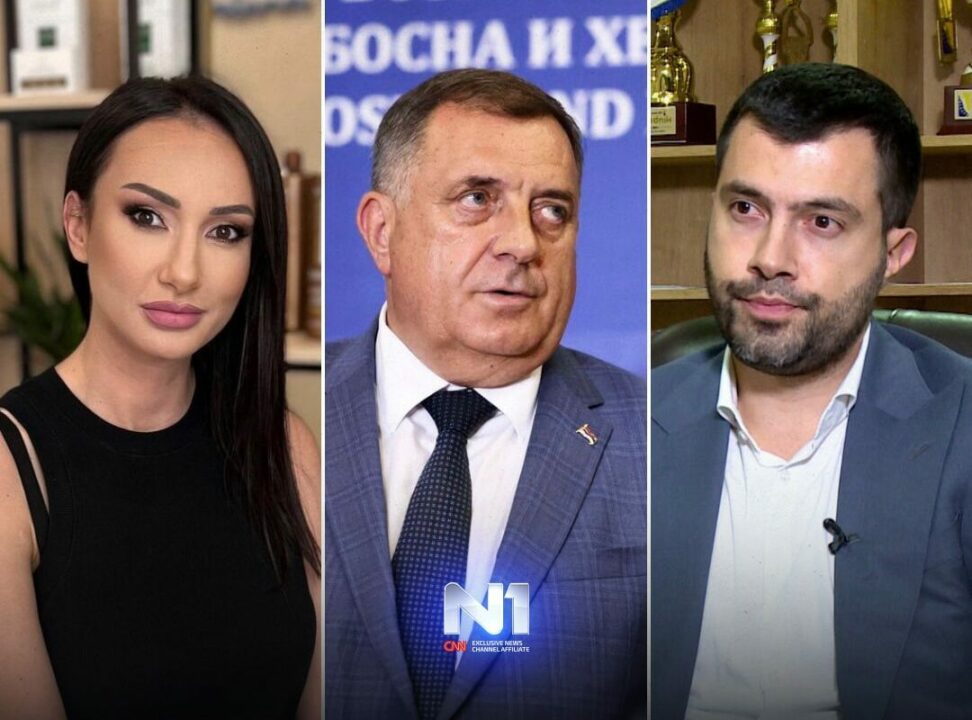
US sanctions Dodik’s son and daughter
BNE Intellinews
The US Department of Treasury announced new sanctions targeting Milorad Dodik’s son and daughter, as well as four entities linked to the family. These sanctions aim to disrupt Dodik’s alleged corruption activities in Bosnia and Herzegovina’s Republika Srpska, allowing him to exploit public funds for personal gain, thus undermining good governance and hurting Bosnian citizens, according to the Department of Treasury. Dodik has allegedly amassed personal wealth through graft, bribery, and corruption, using his official position and a network of personal connections and businesses.
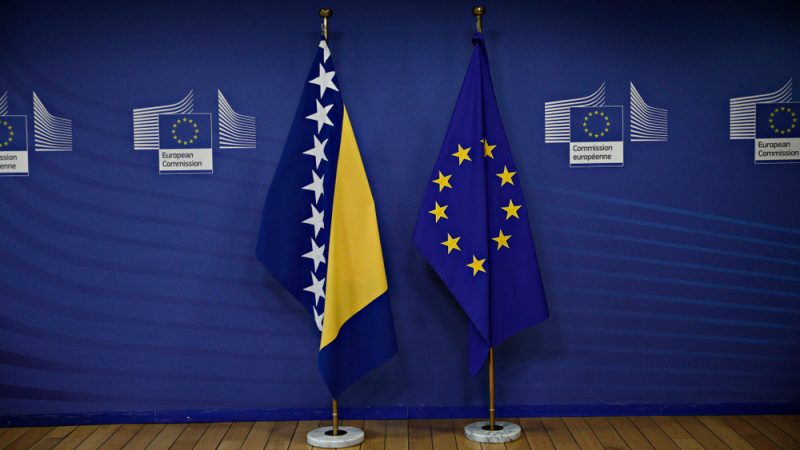
Austria, Slovenia and Croatia support early EU accession talks for Bosnia and Herzegovina
Euractiv
Austria, Croatia, and Slovenia are advocating for the initiation of accession talks with Bosnia and Herzegovina this year. They assert that this move is of very significant geopolitical importance for regional stability. While the EU granted Bosnia and Herzegovina the status of a formal candidate in December 2022, the country must meet 14 defined priorities to commence the accession negotiations. Despite these requirements, the three countries are urging the EU to begin negotiations by the end of the year. They emphasise that enlargement is a potent stabilizing tool and applaud the EU Commission’s more geo-strategic and streamlined perspective on enlargement.
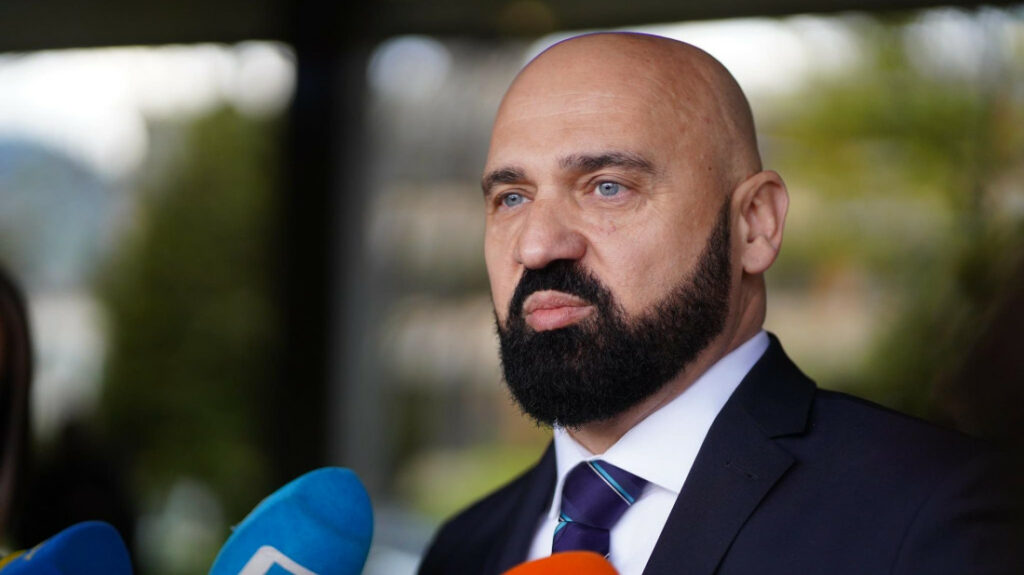
Bosnia and Herzegovina refutes accusations from Italy on terrorism
N1
Interior Minister Ramo Isak of Bosnia and Herzegovina’s Federation (FBiH) has refuted Italian media reports suggesting the presence of around 20 active terrorist cells in the Balkans, including Bosnia and Herzegovina. Isak labelled the information as incorrect and assured the citizens that the security situation in the country is satisfactory. He further asserted that their services work professionally and even offered to provide training for Italian intelligence services to improve their effectiveness. Italy, but also Slovenia, reintroduced border controls and suspended the Schengen treaty in October due to an increase in security risk due to the situation in Middle East.
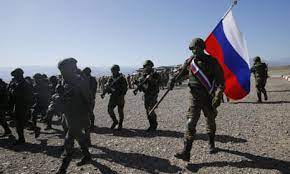
Russia trying to recruit Serbs for its army in Ukraine
The Guardian
The Guardian has corroborated previous reports that Russia is recruiting Serbian paramilitaries to augment its forces in Ukraine. Since the onset of the conflict in Ukraine Russia has introduced legislation to attract foreign individuals to join its ranks. Putin signed an order reducing the minimum contract military service for foreigners from five years to one, and initiated a fast-track recruitment drive for non-Russian combatants. Leaked information from anti-war whistle-blowers revealed a list suggesting plans to conscript hundreds of Serbs to bolster Moscow’s armies.
The Insight Angle

Vanya Petrova
She is an experienced analyst at the Center for the Study of Democracy (CSD), a European public policy institute committed to democratic values and market economics. Her work centres on projects concerning illicit finance, foreign influence, state capture, and the influences of China and Russia. Dr Petrova actively participates in research projects involving shadow banking in developing economies, renationalization in China, fintech and welfare, as well as financial inclusion and bank profitability. She holds a Ph.D. in Economics from Shanghai University of Finance and Economics. Vanya is a member of the World Economic Forum Expert Network and a researcher at Fudan University.
In your report, “Cash is King: Impact of the Ukraine War on Illicit Financial Flows in South Eastern Europe,” you highlighted that global illicit financial outflows constitute 3-5% of the world’s GDP, while illicit financial flows (IFFs) in the Balkans are estimated at around 6% of the region’s GDP. What factors can account for the notably high level of IFFs in the Balkans, and why does this issue remain relatively obscure?
The mixed blessing of being strategically located between Asia and Western Europe enables criminal networks in the Balkans to cross the blurry divide between legal and illegal markets. The region has traditionally served as a gateway route for drug trafficking, human smuggling, and illicit trade. Moreover, the substantial recent infrastructure investments are a powerful catalyst for capital and commercial flows. The porous borders, the interdependent nature of the Western Balkan economies, and the large informal sector, exceeding 25% in all countries covered, provide a permissive playing field for the movement of illicit funds. Most of all, the overall governance features of the Balkan countries, plagued by chronic corruption and clientelism, weak rule of law, corrupted and disabled criminal justice institutions, and undue political interferences are the primary driver of IFFs. The issue of illicit finance is particularly prevalent in Bosnia and Herzegovina due to the division of responsibilities between entities, state level, cantons, etc., where responsibilities are intertwined and institutions are exceptionally fragile, as well as insufficiently staffed and financed to counteract the problem.
How is Moscow capitalizing on the region’s vulnerabilities, such as weak regulatory controls, a fragile rule of law, and a substantial informal economy, to facilitate illicit financial flows (IFFs)? Additionally, what advantages does the region, and certain countries within it, offer to Russian elites and to Moscow while seeking to evade sanctions?
The Western Balkans (WB) remains one of the most vulnerable soft targets for the Kremlin’s ongoing hybrid war against the EU and the democratic West. The combination of state and media capture, simmering ethnic divisions between and within countries, the slow pace of EU accession and the legacy of Russian cognitive bias make the region a gateway for sanctions evasion. For instance, since it is only a potential EU-membership candidate, Bosnia and Herzegovina is not required to align with the EU’s Common Foreign and Security Policy (CSFP). The country has not followed the EU’s sanctions against Russia since 2014. Furthermore, the country’s alignment with the EU’s restrictive measures has significantly declined since 2021. Even though Serbia has condemned the invasion of Ukraine at the UN and other international forums, it has not formally introduced sanctions against Moscow.
When it comes to North Macedonia and Montenegro, despite the fact that they have faced harsh criticism from the EU, they continue to offer ‘citizenship for investment’. Notwithstanding the numerous EC warnings and recommendations that Montenegro should phase-out the investor citizenship scheme as soon as possible because it poses risks of money laundering and corruption, the Montenegrin government recently hit new records in granting honorary citizenships. From 31 August to 8 November 2022, the government granted 296 new citizenships (287 were based on the Economic Citizenship Programme; for five, the state interest was not specified in the decisions). The largest number of recipients came from Russia (110), followed by China (67).
In March 2023, and under EU pressure, Albania temporarily shelved its controversial cash-for-passports scheme. However, the Albanian government declared it would not give up on another thorny economic programme of ‘fiscal amnesty’, under which any Albanian or foreign citizen can deposit up to 2 million in non-declared money into the national banking system, enjoying legal immunity and a 5–10% tax.
EU member states, such as Bulgaria, must directly apply EU regulations on sanctions, meaning tax authorities should initiate freezing procedures even when no national regulation stipulates this (the Bulgarian legal system only provides a procedure to seize assets but not to freeze them). However, Bulgaria so far has not imposed any sanctions against Russian citizens or companies featured on the EU sanctions list despite the fact that they were first imposed already in 2014 after the annexation of Crimea. According to the latest data, nearly 300.000 Russians own over 500.000 properties in the country and, while the national tax agency acknowledges that it should apply the EU regulations on sanctions, this promise remains a dead letter.
Can it be argued that, through illicit financial channels, Russia has expanded its malign influence in the region, particularly in Serbia, Montenegro and North Macedonia, following the aggression against Ukraine? What potential adverse effects might this phenomenon have on Balkan stability and the European integration process?
Kremlin has repeatedly taken advantage of its integration into the Western financial system to exploit governance gaps through the corrosive effect of illicit finance. The brutal invasion of Ukraine shed a harsh light on the sobering dangers of kleptocracy and the risks to which Europe – and the world – has exposed itself by taking a lax approach to dirty money. Russia’s war in Ukraine could exacerbate these circumstances and accelerate further IFFs in the Balkan region – a crucial entry point and essential route for a plethora of illegal activities, such as drug trafficking, human smuggling, illicit trade and contraband.
Due to imposed travel bans, Serbia is one of the few remaining routes for Russians to establish themselves in the region. Since the start of the invasion of Ukraine, Russian nationals have registered more than 5.000 companies in Serbia, over 1.000 being limited liability companies and nearly 4.000 entrepreneurial businesses. The establishment of so many companies in the country offers fertile ground for money laundering. As observed in the Serbian national risk assessment by the national Administration for the Prevention of Money Laundering, limited liability companies and entrepreneurs pose a particularly high degree of threat with respect to money laundering. Through such means wealthy Russians could seek investment opportunities and use existing connections to launder money in real estate and other sectors traditionally vulnerable to IFFs in the region.
Since the onset of the war, a significant number of Russians, potentially exceeding 200.000, have relocated to Belgrade, establishing hundreds of companies and enterprises. With Serbia relaxing its citizenship requirements, many may soon acquire Serbian passports, granting them unrestricted access to the EU. Does this trend pose any security risks for the EU?
Without a doubt! The Law on Citizenship enables the Serbian government to grant citizenship through a special procedure under certain conditions. According to an analysis by Radio Free Europe, in the first half of this year, the number of Russian citizens who received citizenship in Serbia is roughly the same as the number from the entire last year. At the same time, in 2022, the number of Russian citizens who received a Serbian passport tripled compared to the year before the invasion. This poses serious security risks, given that individuals who hold Serbian passport can freely travel to Schengen zone countries without visas, especially in light of how vulnerable the region is to illicit finance. IFFs promote rent-seeking and criminal behaviour, reduce governments ‘capacity to support development and inclusive growth, undermine the rule of law, and jeopardize the business environment. Illicit flows drain public resources, reduce the scope and quality of public services thus undermining confidence in state institutions.
Are there viable solutions for addressing the issue of IFFs in the Balkans, and what role could the EU play in combatting this problem effectively?
Europe needs a strategic decoupling of its economy from Russia’s. Priority should be given to breaking energy dependence and dismantling Russian oligarchic networks across the continent. In the more vulnerable economies of South-eastern Europe (SEE), Russia’s weaponization of trade must be opposed by pursuing a policy of strategic investment by the EU and the US.
There is a critical need to increase the quantity and quality of data available on the nature and magnitude of IFFs so as to comprehend their key drivers, channels and trends, and initiate a stronger policy response. As a transnational problem, the push to curb IFFs requires coherence within and between national and international normative frameworks and coordinated action within the scope of EU enlargement and the Berlin Process.
To prevent Russian companies from evading sanctions, the EU should prioritize halting Russian IFFs, including by accelerating the integration of the SEE into the rollout of the newly designed Anti-Money Laundering Authority (AMLA). Stricter measures should be taken to halt indirect Russian investments through EU companies, especially in the green energy sector.
Not all of the funds that run through IFFs originate from a predicate crime. Capital that has been generated legally, quasi-legally or informally may be transferred through illegitimate channels and held in offshore jurisdictions. Thus, the SEE countries must allow money laundering to be investigated as a separate crime. Authorities have also been slow to act in areas that have long been vulnerable to illicit finance, such as beneficial ownership transparency, which directly relates to preventing, detecting, prosecuting and sanctioning financial crimes. Enforcement of transparency requirements for beneficial ownership is vital, as is the stricter security vetting of investments by third parties in the SEE and European companies or operations.
As a matter of urgency, the SEE countries must prioritize updating their investment and national security strategies to incorporate a robust FDI screening mechanism as an essential defence against foreign malign influence and an additional safeguard for boosting quality foreign investment.
The Key Story
Strategic trends
EU shifts focus to economic development
amid Kosovo-Serbia impasse
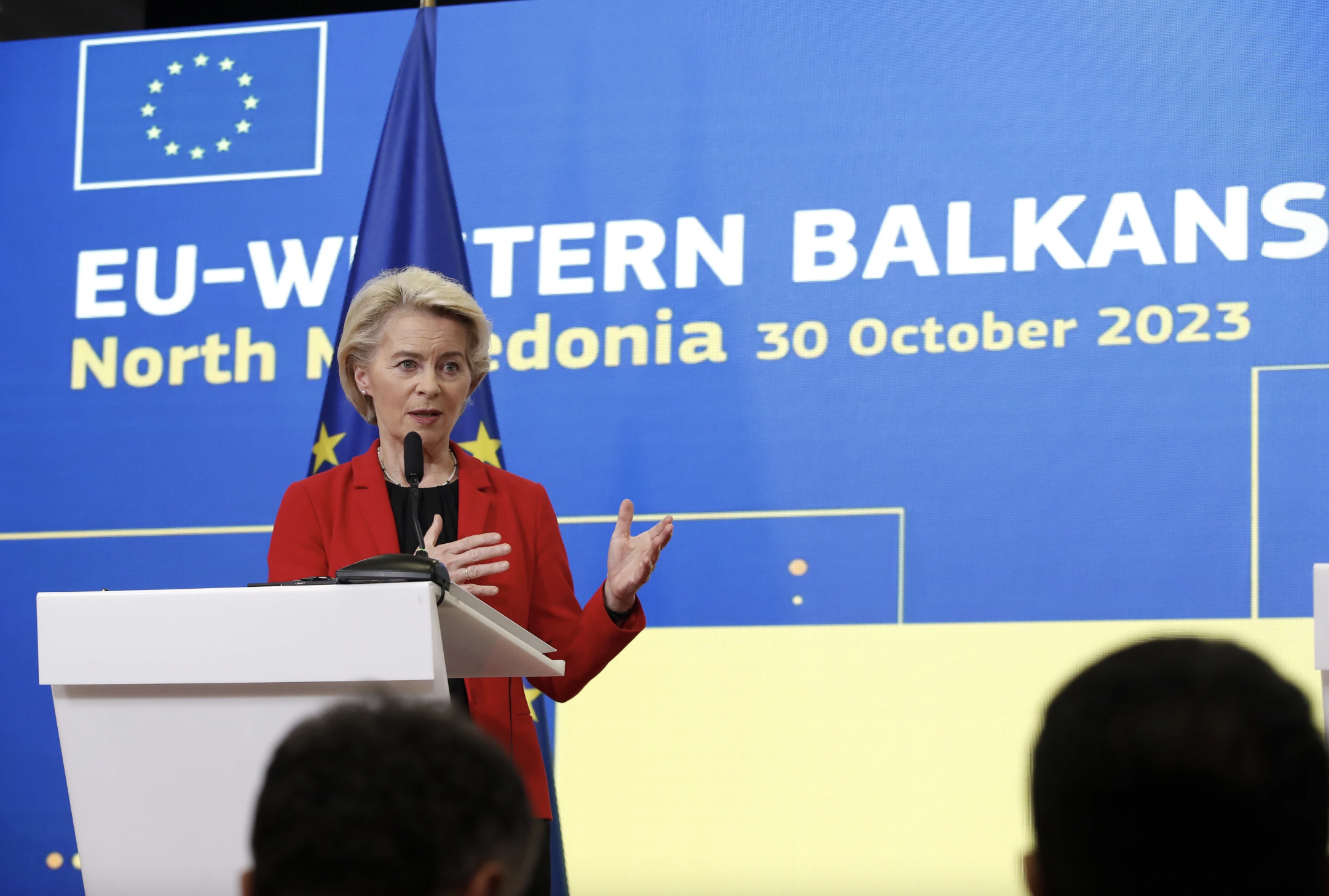
Faced with persistent challenges in resolving the Kosovo-Serbia dispute, and eager to keep the region close to the EU before its full enlargement, the European Union will soon implement a new approach aimed at stimulating economic development in the Western Balkans in order to reduce regional tensions. This strategic reorientation demonstrates the EU’s commitment to addressing the region’s enduring political deadlock and advancing stability. Nonetheless, the concrete effects of this approach have yet to be seen and may fall short of the desired outcomes.
Ursula von der Leyen, President of the European Commission, emphasised the new approach during a tour of the Western Balkans at the end of October. Von der Leyen used the occasion to unveil the details of a € 6 billion growth plan – 2 billion euros in grants and 4 billion euros in loans – aimed at “bringing our economies closer together.” “The growth plan will stimulate your economy, create good jobs, and simultaneously support your path to the European Union,” she said, adding that “this plan has the potential to double your economy in ten years – that’s the goal.”
The plan was first presented at the Berlin Summit in Tirana last October. EU leaders emphasised at the time that this initiative offers the countries in the Balkans certain segments of the EU single market in exchange for comprehensive reforms, as a prelude to their eventual full membership in the bloc. Von der Leyen, European Council President Charles Michel and German Chancellor Olaf Scholz attended the meeting.
According to von der Leyen, the EU’s new growth strategy allows Western Balkan countries to gain access to specific segments of the EU single market in exchange for demonstrated reforms. These countries would be able to participate in the EU market in a variety of sectors, including goods, services, road transport, energy, electricity, customs cooperation, e-commerce, and cashless payments.
Furthermore, von der Leyen stated that countries that implement the requested reforms as soon as possible would receive further investments. Von der Leyen emphasised constantly the conditionality of these funds, stating that they would be released if reforms were successfully implemented. Out of the 30 billion euros pledged three years ago, the EU has already mobilised 16 billion euros for investment in the region. Von der Leyen emphasised the importance of tapping into the potential of the Western Balkans and bringing them closer to the European single market in encouraging these reforms. She also stated that, by failing to move forward with reforms, the only one to be blamed for impeding progress is a country itself.
Albanian Prime Minister Edi Rama expressed optimism about the new plan, seeing it as promising for a more cooperative and partner-like relationship that would improve mutual understanding. Other leaders in the region, particularly those in Serbia, were more reserved in their response.
President Vucic, in particular, did not attend the Berlin Process Summit in Tirana, where regional and EU leaders signed cooperation, trade and EU integration agreements. Instead, he went to China to sign a free trade agreement and sent Prime Minister Ana Brnabic to the European summit. His absence fuelled speculation among EU diplomats that he was avoiding difficult questions about the September 24 terrorist attack in northern Kosovo, potential EU actions, and calls to limit ties with Russia and China. Several analysts also expressed reservations about the EU initiative’s feasibility, arguing that it could further delay actual enlargement while failing to address pressing issues such as the Kosovo-Serbia conflict.
Meanwhile, the dispute is still ongoing and appears to be so for the foreseeable future. On the side-lines of the European Council in October, the EU convened a high-level meeting in Brussels at the end of October. Macron, Scholz, Meloni, Serbian President Vucic, and Kosovar Prime Minister Kurti attended the meeting, which aimed to bring the parties back to the negotiating table following the incident in Banjska.
Unfortunately, despite diplomatic pressure from Paris, Berlin, and Rome, the leaders of Serbia and Kosovo were unable to agree on a timeline for de-escalating ongoing tensions and establishing an association of Serbian municipalities in northern Kosovo, a critical step towards normalisation. And with European elections on the horizon and early elections in Serbia scheduled for the 17th of December, the Serbia-Kosovo issue appears to be stalled for the foreseeable future.
Further News and Views
Montenegro finally gets a new government backed by a pro-Russian alliance
Sources: Politico, Reuters, TVP World
Montenegro’s new government, led by Prime Minister Milojko Spajic, received parliamentary approval with the support of a pro-Russian alliance, fuelling protests by nationalist groups. This vote came nearly five months after the general elections. Out of 66 MPs present in the 81-member parliament, 46 voted in favour during a lengthy overnight debate. Prime Minister Spajic of the Europe Now party, envisions Montenegro as the “Switzerland of the Balkans” and the “Singapore of Europe.” His party secured a narrow lead in the June parliamentary elections, necessitating extensive coalition negotiations. The new coalition includes pro-Russian and pro-Serbian parties, notably the “For the Future of Montenegro” alliance, whose leader, Andrija Mandic, was elected as the parliamentary speaker.
This alliance opposes recognizing Kosovo’s independence and does not support international sanctions against Russia in response to the Ukraine conflict. The recent elections followed the defeat of long-time leader Milo Djukanovic in a presidential run-off, signalling a shift in Montenegro’s political landscape.
Since the 2020 parliamentary elections, where the dominant Djukanovic’s DPS party faced significant losses, Montenegro has experienced a series of crises. This prolonged political dysfunction has left many of its 620,000 citizens, with one-third identifying as Serbs, feeling disillusioned. Montenegro, a NATO member since 2017, has been negotiating EU membership since 2012. However, political instability and institutional paralysis have hindered the country’s progress towards joining the 27-nation political bloc.
Hungary and Serbia protest against Bulgarian tax on Russian gas transit
Sources: Euractiv, Associated Press, Radio Free Europe
Serbian President Aleksandar Vucic and Hungarian Foreign Minister Peter Szijjarto have voiced strong objections to Bulgaria’s decision to impose significant transit fees of €10,2 per MW/h of natural gas passing through the Bulgarian extension of the Turkish Stream gas pipeline to Western Europe, known as the “Balkan Stream.”
This decision affects Serbia, Hungary, North Macedonia, and Austria, which rely on the “Balkan Stream” for Russian gas. Bulgaria expects the new fees to generate an extra €1,2 billion, paying off the pipeline construction in just one year. Vucic expressed concern about the substantial gas price increase and plans to discuss the issue with the Bulgarian government, though the new legislation was passed independently of him and his government.
The ruling majority in Bulgaria defended the decision, emphasizing Bulgaria’s authority over fees for gas transit through its territory. They suggested Serbia and Hungary should seek alternatives. The move is seen as part of a broader European strategy to reduce Russia’s income from natural gas sales and employ economic measures to influence Russia’s actions.
EU - NATO
NATO send reinforcements and heavy armament to Kosovo
Sources: Associated Press, Radio Free Europe, France 24
In response to heightened tensions in Kosovo following a recent shootout between masked Serb gunmen and Kosovo police, a NATO top commander announced that the alliance has supplied its peacekeeping force in the region with “combat power.” Adm. Stuart B. Munsch of the Allied Joint Force Command Naples, Italy revealed that a battalion of approximately 200 troops from the United Kingdom and 100 from Romania has been equipped with heavier armament. The NATO-led Kosovo Force (KFOR), composed of about 4.500 troops from 27 nations, had previously operated with lighter armament and vehicles since its deployment in June 1999. On September 24, a group of around 30 Serb gunmen killed a Kosovar police officer and engaged in a lengthy gun battle with Kosovo police, during which three gunmen were killed.
Meanwhile, NATO Secretary-General Jens Stoltenberg expressed his concern about the situation in Kosovo and NATO’s readiness to maintain peace there in an interview with the German newspaper Welt am Sonntag. He emphasized that NATO would prevent a return to the violent conflicts of the 1990s, highlighting the alliance’s commitment to regional peace and security. Stoltenberg also emphasized the significance of diplomatic efforts in resolving the issue and urged Serbia and Kosovo to return to EU-facilitated talks as the most viable path to achieving lasting peace in the region.
ECONOMICS
Bulgaria moves forwards with the construction of two new reactors
Sources: World Nuclear News, CEEnergy News, Reuters
Bulgaria is moving forward with plans to construct two additional reactors at its Kozloduy nuclear power plant, adding a combined capacity of 2.300 megawatts (MW), as announced by the Bulgarian Prime Minister Nikolay Denkov. The country’s Energy ministry will begin selecting a contractor for the design, construction, and commissioning of the seventh new power unit, while simultaneously initiating procedures for the eighth unit. The construction of the seventh unit is scheduled for completion by 2033 and will be funded with 500 million leva in addition to previously allocated funds. The government intends to negotiate new loans with financial institutions to support the project.
Bulgaria’s Kozloduy nuclear power plant is the nation’s sole nuclear facility, with two 1.000 MW Soviet-made nuclear reactors currently in operation. The previous four reactors were closed by 2007. The new reactors, with a total capacity of 2.300 MW, will surpass the 1.760 MW capacity of the previously closed units. Denkov emphasized that the selected technology for the reactors would ensure stable energy system management but did not provide specific details. Earlier this year Westinghouse signed an MoU to initiate planning for the potential deployment of one or more reactors

Stefano Giantin
Journalist based in the Balkans since 2005, he covers Central- and Eastern Europe for a wide range of media outlets, including the Italian national news agency ANSA, and the dailies La Stampa and Il Piccolo.

